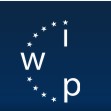The Institute of World Policy has presented the policy paper “Scenarios for the Development of the Transnistria Conflict. Challenges to European Security”.The press-conference took place on June 1, 2011 on the premises of the UNIAN press-centre.{6}
WP director Alyona Getmanchuk, expert Yevhen Yenin, IWP first deputy director Serhiy Solodkyy and IWP deputy director Kateryna Zarembo presented the paper. {2}
Copies of the publication “Scenarios for the Development of the Transnistria Conflict. Challenges to European Security” in English and Ukrainian were available at the presentation.
“We have tried to assese the possibilities of each scenarion of the development of the situation in the most objective way, so we have considered all possible factors, which can contribute to that”, stated IWP director Alyona Getmanchuk.
{3}Having implemented its study called “Scenarios for the Development of the Transnistria Conflict. Challenges to European Security,” the Institute of World Policy has come to a number of conclusions. Firstly, the two most likely scenarios for the further development of the situation in Transnistria over the next five years look as follows: either status quo will be maintained (8 points of 10) or a political settlement will be reached on the basis of a modified Russian plan (8 points). For instance, the Europeanization of Transnistria, which is only likely in the medium to long term, could take place at the same time as status quo is maintained or the Russian—or Russian-EU—settlement plan is carried out.
The likelihood of any given scenario that would deprive the Republic of Moldova of any part of its territory or sovereignty, especially the independence of Transnistria or its union with Russia or Ukraine, is extremely low (0.5-1 point). {7}
However, it should be kept in mind that elements of such scenarios could be put into effect. For instance, while Transnistria’s joining Russia is highly unlikely, elements of some kind of “voluntary association” such as Puerto Rico’s relationship to the United States, are de facto already in place today.
The likelihood that armed conflict will flare up again is virtually zero.
This report was prepared by the Institute of World Policy (Ukraine) in partnership with the, the Polish-Ukrainian Cooperation Foundation – PAUCI (Poland), the Institute for Public Affairs (Slovakia), the Institute of Sociology under the Hungarian Academy of Sciences (Hungary), and the Association for International Affairs (Czech Republic).
This study was made possible thanks to the support of the International Visegrad Fund and the Black Sea Trust, a project of the German Marshall Fund of the United States.
The full text of the Policy Paper is available here
{8}{9}{10}{13}{11}
Photo by Natalia Sagalata
{1}{12}




Comments theme
Comments themeComments themeComments themeComments themeComments themeComments themeComments themeComments themeComments themeComments themeComments themeComments themeComments themeComments themeComments themeComments themeComments themeComments themeComments themeComments.